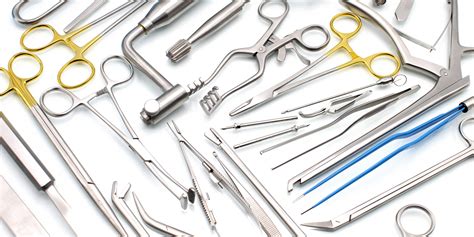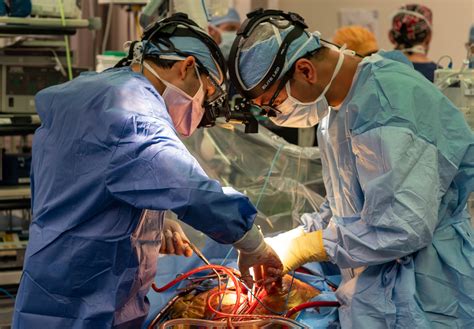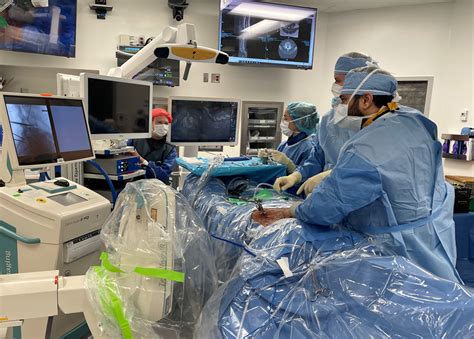Intro
Discover the 7 types of surgery, including elective, emergency, and reconstructive procedures, covering orthopedic, cardiovascular, and cosmetic surgery, to inform your medical decisions.
Surgery is a medical procedure that involves manual or instrumental treatment of a bodily part, often involving incisions, excisions, or other modifications to repair or remove damaged or diseased tissues and organs. With advancements in medical technology and techniques, various types of surgery have emerged, each designed to address specific health issues. Understanding these different types of surgery is essential for patients, medical professionals, and anyone interested in healthcare. The importance of being informed about surgical options cannot be overstated, as it empowers individuals to make informed decisions about their health and well-being.
The field of surgery is vast and diverse, encompassing a wide range of procedures that can significantly improve the quality of life for patients suffering from various conditions. From life-saving interventions to elective procedures aimed at enhancing physical appearance or function, surgery plays a critical role in modern medicine. The decision to undergo surgery is a significant one, and it is crucial for patients to have a comprehensive understanding of the procedure they are considering, including its benefits, risks, and what to expect during the recovery process.
As medical science continues to evolve, new surgical techniques and technologies are being developed, offering patients more options and potentially better outcomes. This evolution underscores the importance of staying informed about the latest advancements in surgical care. Whether you are a patient facing a surgical procedure, a family member or friend seeking to support a loved one, or simply someone interested in health and wellness, exploring the different types of surgery can provide valuable insights into the complex and fascinating world of surgical medicine.
Introduction to Surgical Types

Surgical procedures can be broadly categorized based on their purpose, the part of the body involved, the level of invasiveness, and other factors. Understanding these categories is essential for navigating the complex landscape of surgical options. Among the primary types of surgery are diagnostic surgery, cosmetic surgery, reconstructive surgery, transplant surgery, orthopedic surgery, neurological surgery, and cardiovascular surgery. Each of these categories encompasses a range of specific procedures tailored to address particular health needs or conditions.
Diagnostic Surgery
Diagnostic surgery is performed to diagnose a condition or disease. This type of surgery involves the removal of a tissue sample for examination, known as a biopsy, and can be crucial in determining the presence and extent of diseases such as cancer. Diagnostic surgical procedures can be minimally invasive, involving small incisions through which specialized instruments are inserted, or they can be more invasive, depending on the location and nature of the tissue to be sampled.Cosmetic Surgery

Cosmetic surgery, also known as plastic surgery, is aimed at enhancing the appearance of an individual. It can involve procedures such as facelifts, breast augmentation, liposuction, and rhinoplasty, among others. While often elective, cosmetic surgery can also be used to repair damaged tissues and improve the function of certain body parts. The decision to undergo cosmetic surgery should be made after careful consideration of the potential benefits and risks, as well as a thorough consultation with a qualified surgeon.
Reconstructive Surgery
Reconstructive surgery is performed to repair damaged or deformed tissues and organs. This type of surgery can be necessary after traumatic injuries, to correct birth defects, or to restore form and function following the removal of a tumor. Reconstructive surgical procedures can be complex and may involve the transfer of tissue from one part of the body to another, known as a flap, or the use of prosthetic materials.Transplant Surgery

Transplant surgery involves the transfer of an organ or tissue from a donor into a patient's body. This can include procedures such as kidney transplants, liver transplants, heart transplants, and bone marrow transplants, among others. Transplant surgery is a life-saving option for many patients with end-stage organ failure or certain types of cancer. However, it also involves significant risks and requires careful matching of the donor and recipient to minimize the chance of rejection.
Orthopedic Surgery
Orthopedic surgery focuses on the musculoskeletal system, which includes bones, joints, muscles, and associated structures. Procedures in this category can range from joint replacements, such as hip or knee replacements, to fracture repairs and surgical interventions for musculoskeletal diseases like osteoarthritis. Orthopedic surgery aims to alleviate pain, restore function, and improve mobility in patients with musculoskeletal disorders.Neurological Surgery

Neurological surgery, or neurosurgery, involves surgical procedures on the brain, spinal cord, and nervous system. This can include operations to remove brain tumors, repair aneurysms, treat conditions like epilepsy, and relieve pressure on the spinal cord. Neurosurgery is highly specialized and requires precise techniques to navigate the delicate structures of the nervous system.
Cardiovascular Surgery
Cardiovascular surgery encompasses procedures on the heart and the blood vessels. This can include coronary artery bypass grafting (CABG), heart transplants, repairs of heart defects, and surgeries to treat conditions like aneurysms and peripheral artery disease. Cardiovascular surgery is critical for treating diseases of the heart and vascular system, which are among the leading causes of morbidity and mortality worldwide.Preparing for Surgery

Regardless of the type of surgery, preparation is key to ensuring a smooth procedure and recovery. Patients should follow their surgeon's instructions regarding diet, medication, and activity levels before surgery. It is also essential to have a support system in place, as recovery can be a challenging time. Understanding the risks and benefits of the procedure, as well as what to expect during and after surgery, can help alleviate anxiety and promote a successful outcome.
Recovery and Aftercare
The recovery process varies significantly depending on the type of surgery, the individual's overall health, and their adherence to post-operative instructions. Generally, patients should expect some level of discomfort, which can be managed with pain medication. Following a healthy diet, staying hydrated, and avoiding strenuous activities as advised by the healthcare team can support the healing process. Attend all scheduled follow-up appointments to monitor progress and address any concerns that may arise during recovery.Advancements in Surgical Techniques

The field of surgery is continually evolving, with advancements in technology and technique offering patients less invasive options, quicker recovery times, and potentially better outcomes. Minimally invasive surgery, robotic surgery, and laparoscopic procedures are examples of how technology is changing the face of surgical care. These methods often result in smaller incisions, less pain, and reduced risk of complications compared to traditional open surgery.
Future of Surgery
As medical science progresses, the future of surgery holds much promise. Emerging technologies like artificial intelligence, virtual reality, and 3D printing are being explored for their potential to enhance surgical training, improve precision during procedures, and develop personalized prosthetics and implants. The integration of these technologies into surgical practice could lead to more efficient, effective, and patient-centered care.What are the main types of surgery?
+The main types of surgery include diagnostic surgery, cosmetic surgery, reconstructive surgery, transplant surgery, orthopedic surgery, neurological surgery, and cardiovascular surgery. Each type addresses specific health needs or conditions.
How do I prepare for surgery?
+Preparation for surgery involves following your surgeon's instructions regarding diet, medication, and activity levels. It's also crucial to have a support system in place and understand what to expect during and after the procedure.
What is the difference between cosmetic and reconstructive surgery?
+Cosmetic surgery is aimed at enhancing appearance, while reconstructive surgery is performed to repair damaged or deformed tissues and organs, often to restore function or correct defects.
In conclusion, the world of surgery is complex and multifaceted, offering a range of options for patients facing various health challenges. By understanding the different types of surgery and staying informed about advancements in surgical care, individuals can make more informed decisions about their health. Whether you are considering surgery or simply interested in learning more about this critical aspect of healthcare, there is no denying the significant impact that surgical procedures can have on improving the quality of life for countless individuals around the world. We invite you to share your thoughts, ask questions, or explore further the many facets of surgery that can benefit your well-being or that of your loved ones.
